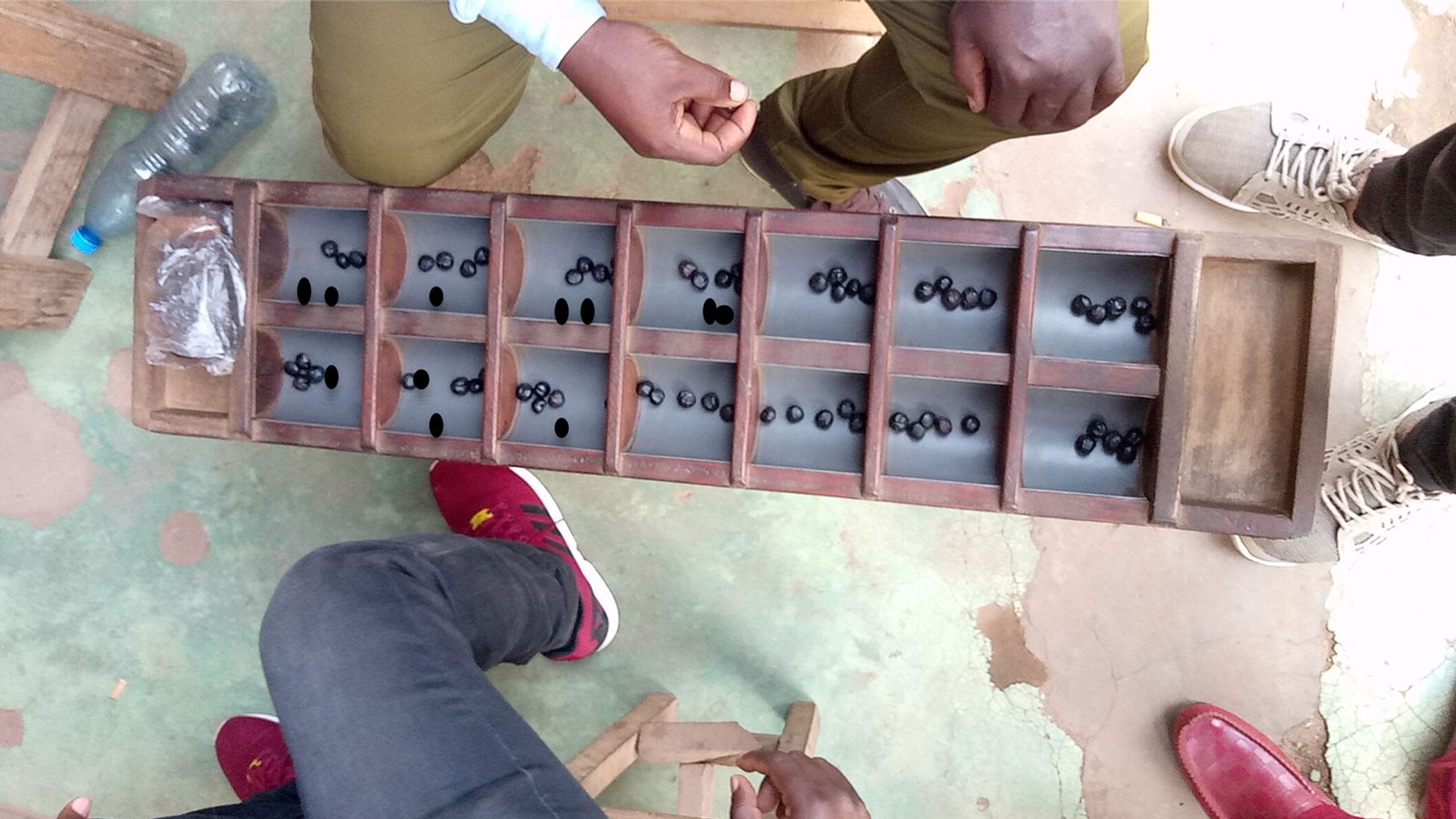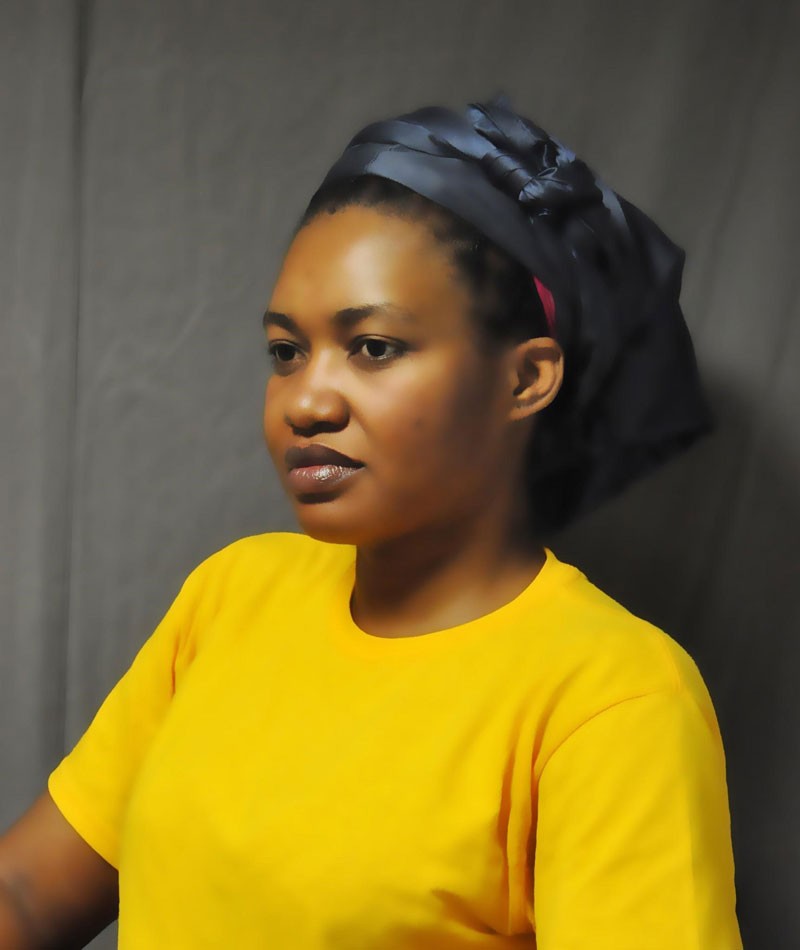Classic African Board Game Songo a Space for Learning, Collaboration
By Allyson Myers |
The way Songo is played in the cultures that created the game can teach us about collaborative approaches to education, according to research by USU Assistant Professor Rebecca Y. Bayeck.
Rebecca Y. Bayeck is studying the cultural values and literacies intertwined with the classic African game Songo to find ways to create inclusive learning environments in formal learning settings.
Bayeck is an assistant professor in Instructional Technology and Learning Sciences at Utah State University.
With dual Ph.D.s in Learning Design and Technology and Comparative International Education, as well as a post-doc experience with the Schomburg Center for Research in Black Culture at the New York Public Library, Bayeck is accustomed to doing her research through many lenses.
When discussing topics like game-based learning and the impact of emerging technology on modern literacies, Bayeck always includes the cultural framework of the specific context, situations and people she is learning about. This interdisciplinary perspective allows her to delve into the values woven into learning scenarios and literacies, shedding light on the deeper roots of games and learning systems in different cultures.
“One size does not always fit all,” Bayeck said. “Depending on the context, depending on the situation, depending on the event, depending on the person, things might be different. If we are talking about learning with games in the American context, what does that mean if I look at a game in a different context?”
A common thread in Bayeck’s research is the study of “literacies,” a term used frequently in Bayeck’s field to mean familiarity with various methods of learning, communicating and connecting, especially as influenced by emerging technology.
“This is not just about reading and writing,” Bayeck said, “but it is about meaning-making, making sense of things.”
Bayeck’s current research pursuit was inspired by a discussion in a course about the history of games where students were asked to think about a game they played as a child and the lessons they learned from playing. While many of her American-born classmates spoke of American games, Bayeck thought about Songo, a classic African board game played by her grandfather while she was growing up in Cameroon.
Songo is played using a wooden board with 14 small compartments, or holes, laid out in two rows of seven, with two larger holes in each end, one for each of the two players. At the beginning of the game, each hole is set up with five seeds, or “iban,” and players take turns picking up the seeds from one hole and distributing them into the other holes around the board. Certain actions allow players to “capture” seeds, placing them into their end hole, and the first player to reach 40 seeds is declared the winner.
Though Bayeck didn’t play Songo herself, as the game is played primarily by men in the culture, she remembered watching the way that players interacted with one another and how spectators collaborated with those playing. Reconnecting with her childhood curiosity, Bayeck decided to pursue a better understanding of what people are learning and what literacies they are developing when they play Songo.
Songo and other classic African board games are often lumped together in a broad category and called “mancala,” both in academic research and in more casual literature. However, these games belong to specific ethnic groups; Songo, for example, is known to be the classic game of the ethnic groupsBeti and Ekang (or Fang) in Cameroon, Gabon and Equatorial Guinea. Throughout her research, Bayeck continues to be adamant about calling the game by the specific name used by the people who designed it and who have played it for centuries.
“When you label things the wrong way, there’s a part of history that you’re taking away,” Bayeck said. “It’s almost like an erasure of people’s culture, design abilities, and how the game is connected to the people’s history.”
Working with three playing groups in different areas in Yaoundé, the capitol city of Cameroon, Bayeck has observed and recorded hours of gameplay and conducted many interviews to learn about Songo, the people who play it, and its role in the community. Songo has many distinct and complex rules beyond the basic gameplay; as Bayeck learns to play the game herself, she is learning how the deeper culture of the game is influenced by the culture of the communities who created it and continue to play it today.
A prime example of the unspoken values and cultural literacies that are embedded in the game is the way the players and spectators interact with one another during matches. It is not only common, but expected that spectators will advise players during the game, and the more advanced player often helps their opponent throughout the match.
“When it comes to Songo, the part that is really important in the gameplay is the cultural context or community way of caring for your brother,” Bayeck said. “Though it is a very competitive board game, when you are stuck and you don’t know what move to make, the opponent is absolutely willing to come to your aid and help you make the best move.”
Bayeck has coined the term “Songoputation” to better capture the collaborative cultural context that influences the computational thinking skills required to play the game well. Players engage in an informal, collaborative type of computational thinking, where they include others in their thought process and work together so that the whole group can learn and improve.
As she continues to learn about this different approach to learning, Bayeck hopes to find ways to develop more collaborative and inclusive learning environments in formal learning settings. Following the patterns of values she observes among Songo players, Bayeck envisions classrooms where students do not see themselves as competing with their classmates but rather feel that the more they help their fellow learners, the more proficient they themselves will become.
“I’m sure that this research is opening different doors,” Bayeck said. “My goal is to continue building on what I’ve learned so far and seeing how it applies to other contexts, other technologies or other learning environments.”
Learn more about Bayeck’s research through the publications below:
Positionality: The Interplay of Space, Context and Identity
Understanding computational thinking in the gameplay of the African Songo board game
Rebecca Y. Bayeck
WRITER
Allyson Myers
Public Relations and Marketing Assistant
Emma Eccles Jones College of Education and Human Services
allyson.myers@usu.edu
CONTACT
Alicia Richmond
Director of Public Relations & Marketing
Emma Eccles Jones College of Education & Human Services
alicia.richmond@usu.edu
TOPICS
Research 879stories Education 332stories World 121storiesComments and questions regarding this article may be directed to the contact person listed on this page.









